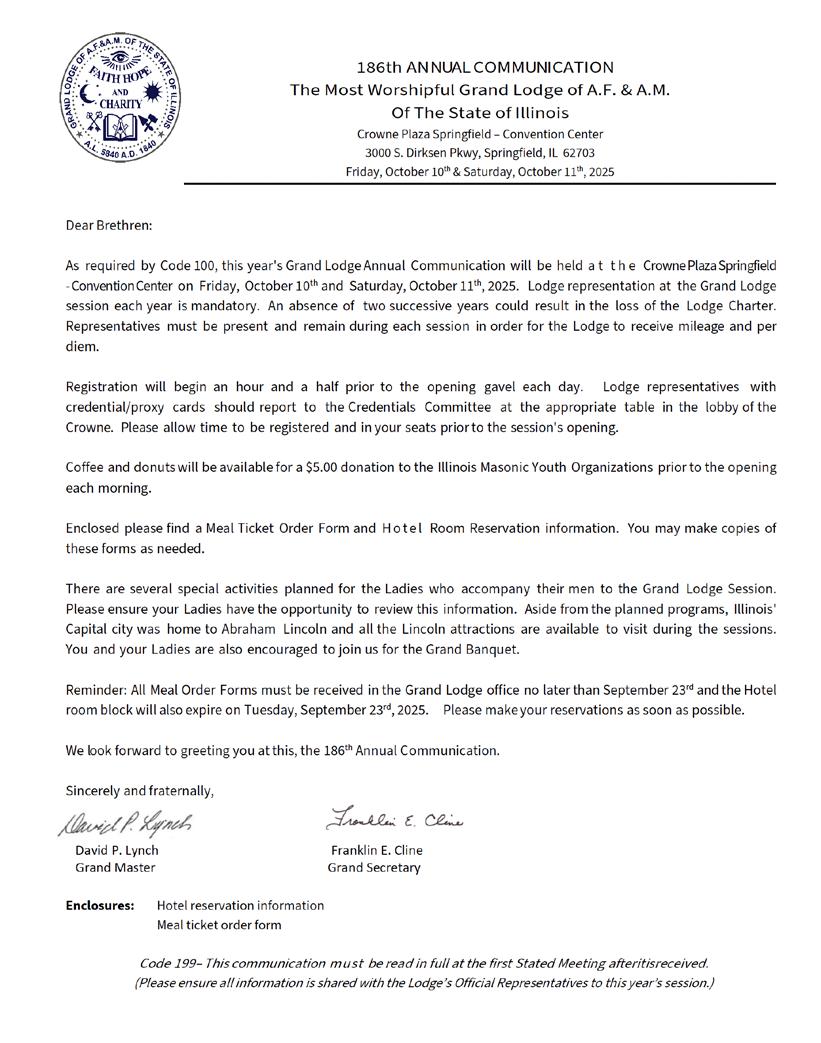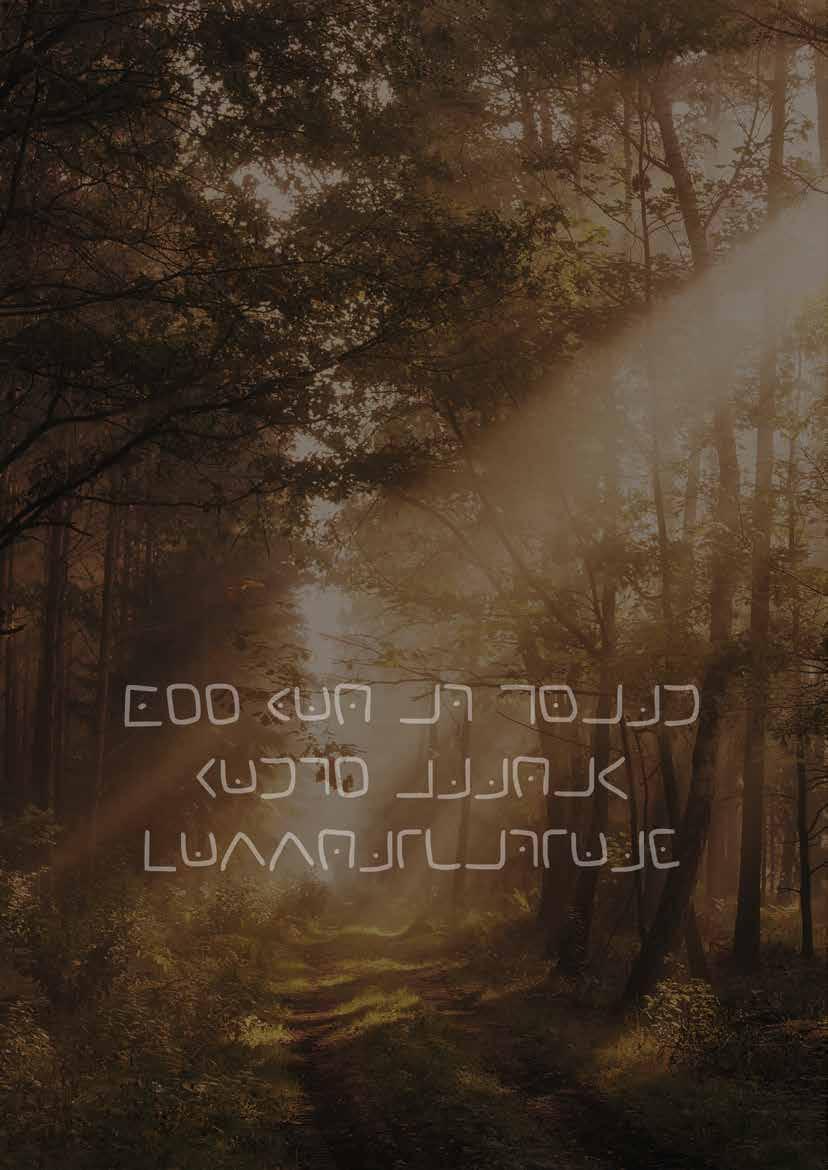The Lyceum

A Publication of The Committee on Masonic Education
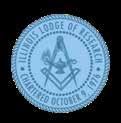

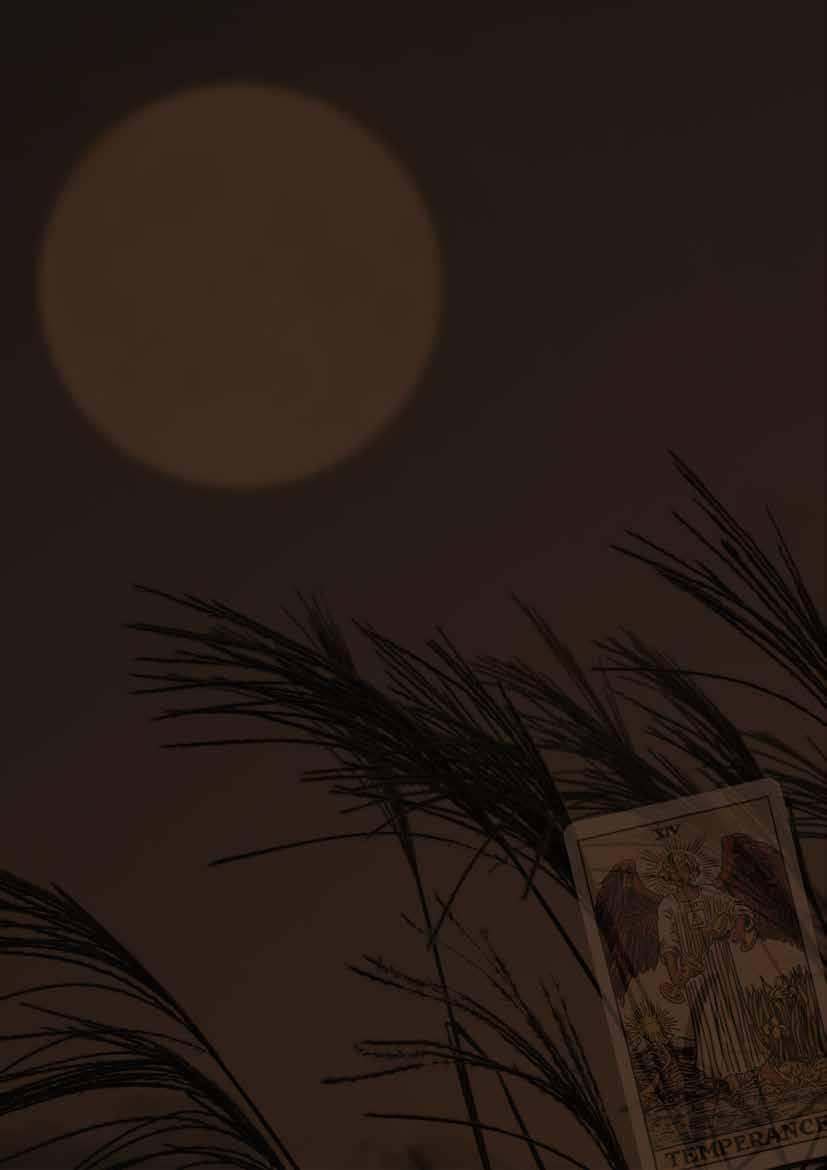







Dear Brothers,
As the Editor in Chief of The Lyceum, the official educational magazine of the Grand Lodge of Illinois, I am proud and enthusiastic to welcome you to this enlightening issue.
Our magazine offers an inspiring blend of content that explores the many facets of truth within Freemasonry. This issue begins with powerful words from our esteemed Chairman, delving deeply into the essence of truth to provide inspiration and reflection.
We are delighted to feature “The Search for Truth is Its Own Reward,” from our brethren at the Grand Lodge of Massachusetts, offering a unique perspective on truth’s pursuit.
Chad M. Lacek contributes with “To Tell You the Truth,” an article that invites you to explore the profound essence of truth, from divine “Capital T Truth” to subjective “little t truths,” challenging perceptions and stimulating contemplation.
Esteemed Masonic scholar Kristine Wilson-Slack offers “Confusing Truth,” unraveling the elusive distinction between ‘truth’ and ‘Truth.’ This piece guides seekers toward Universal Truths through symbols and shared wisdom.
Darin A. Lahners enhances our exploration with “What is Truth in Freemasonry,” where ancient knowledge intersects with modern understanding, revealing how timeless disciplines serve as keys to Universal Truths.
In this issue, I’ve penned “Truth is a Divine Attribute,” inviting you to a philosophical adventure. We explore how Freemasonry upholds Truth’s virtues amidst modern narratives, emphasizing vigilance in discerning fact from fiction.
Steve Harrison’s intriguing piece, “The Musterion,” reveals the mysterious allure of Freemasonry, blending ritual and reality to unravel myths and enlighten curiosity.
We’ve also unearthed archival treasures, including a compelling oration from 1960 and a Grand Master’s address from 1954, serving as reminders of timeless wisdom and enduring Masonic values.
I encourage you to explore the invitations enclosed for the Annual Illinois Lodge of Research meeting and the Grand Lodge Annual Communications—events promising enriching learning and fellowship.
With warm wishes, I invite you to engage with this issue, letting the inspirations within these pages expand your knowledge and passion for Freemasonry. May your learning journey continue with curiosity, understanding, and enlightenment.
Fraternally yours,
R.H. Johnson,

Editor-In-Chief
The Lyceum
The Grand Lodge of Illinois, Committee on Masonic Education

by WB:. Dr. Bernard Davis Jr., Chairman- Masonic Education Committee
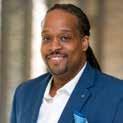
This month, we turn our attention to the third principal tenet of Freemasonry: Truth. In a world increasingly shaped by noise, distraction, and ambiguity, Truth remains our compass, steady, unwavering, and essential.
As Masons, we are taught that Truth is divine. It is not merely factual correctness, but a deeper alignment with moral integrity, spiritual clarity, and intellectual honesty. In our rituals, Truth is symbolized as the foundation upon which we build our character, our relationships, and our understanding of the Craft. From an educational standpoint, Truth challenges us to be lifelong learners, not just of Masonic history and symbolism, but of ourselves. It calls us to examine our motives, question our assumptions, and refine our understanding through study and reflection. The pursuit of Truth is not passive; it is active, deliberate, and often uncomfortable. But it is in that discomfort that growth occurs.
Truth also demands transparency in leadership, humility in teaching, and courage in dialogue. As educators and mentors within the Craft, we must model Truth, not only in what we say, but in how we listen, how we correct, and how we guide. Our lodges must be places where Truth is not feared, but welcomed, where Brothers feel safe to ask, to challenge, and to evolve.
Let this month’s Lyceum be a space for deep inquiry. Let us explore the layers of Truth in our degrees, our symbols, and our personal journeys. And let us remember that while Truth may be veiled, it is never absent. It waits patiently for those willing to seek it with sincerity and light.
Fraternally,
Dr. Bernard Davis Jr,
WB Dr. Bernard Davis Jr, Chairman - Committee on Masonic Education Grand Lodge of the State of Illinois

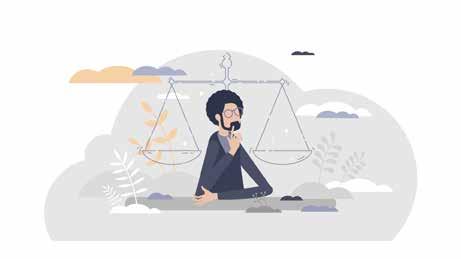
by Steven L. Harrison, 33˚, FMLOR
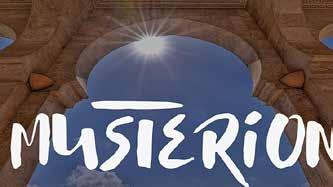
“Just what,” he asked, “do you do inside those lodge rooms?”
The question came out of nowhere, unexpected. A friend sitting across from me at lunch just suddenly exploded with curiosity, wondering what mysterious things we Masons do in… secret. I recalled asking a similar question myself as I stood outside a lodge room as a non-Mason, waiting for admission to present my father his 50-year pin, “What in the world must be going on in there?”
Many in the profane world, on the rare occasions their thoughts turn to Freemasonry, ask the same question or similar questions about the fraternity. In the ensuing silence, absent annoying facts, the deadly combination of imagination and speculation mixed with the enticing elixir of mystery and secrecy sets in. We have seen all too many examples of the resulting urban legends about our activities.
Our word “mystery” derives from the Greek word “musterion,” Implying secrecy, it was used to describe the activities and tenets of the many ancient Greek guilds, brotherhoods, and schools of philosophy. Only the initiates of those organizations knew their secrets, which were beyond the understanding of outsiders. Sound familiar? The word is likewise used in the Bible. In Matthew 13:11 Jesus says, “To you (his disciples) it has been granted to know the mysteries (musterion) of the kingdom of heaven, but to them, it has not been granted,” emphasizing the concept that his disciples have knowledge beyond the capacity of outsiders to understand.
Individuals or groups… everyone has secrets. Your company’s board of directors doesn’t always make its minutes public. Your church trustees discuss confidential topics. Individuals have things they want to keep to themselves. I have even personally known two couples who were secretly married. We revere our secrets, and most times we have them for what we think are legitimate reasons, but just let someone else have a secret and it will draw people like a magnet. Busybodies of the world, unite!
When Brother Meriwether Lewis scouted ahead of the Corps of Discovery and climbed that first mountain in the Rockies, he did not know what he would find at the summit. It was a mystery. He later wrote that he conjured up a picture of the mountain sloping into a green valley, with the Columbia River flowing through it, and maybe, far-far away, a glimpse of the Pacific Ocean and their final destination. When he got to the top, he saw nothing of the sort as he looked at miles and miles and miles of more mountain tops. His imagination did not match reality. Rather, a “rough and rugged road” was revealed to him. Rarely is our speculation about what will be revealed an accurate outcome.
Most mysteries don’t lead to speculation about green fields and flowing rivers, do they? Given human nature, the imagination seems to lead us down a more sinister path or into something just plain weird. Swamp gas becomes a flying saucer. Or was it the other way around?
So Freemasonry, a System of morality, veiled in allegory, illustrated by symbols, and all that stuff, becomes
an easy target. Outsiders see the symbols, some looking weird and exotic. They don’t understand or don’t know about the allegory and, voila… a musterion. Now, throw in a dab of secrecy and you’ve got people worked into a frenzy.
It is common for law enforcement agencies to withhold information about a suspect during an investigation. They do this in order to avoid tipping off the suspect about what they know. This, of course, drives people crazy. They want to know everything, and they want to know now – even though releasing that information might be detrimental to their ultimate goal: catching the suspect. Transparency is good, but so is discretion. We love our own secrets and hate other people’s. So my company can keep its plans confidential, but not those sinister Freemasons. And by the way, secret does not mean sinister.
Here’s a pro tip: don’t write a book called “The History of Freemasonry.” Call it “The Secret History of Freemasonry.” It’s good for sales.
Mystery, secrecy, imagination, and speculation… mix them all together and you give people license to run free and wild, and come up with opinions like these:
I don’t have any real proof, but I know for sure…
Freemasonry is a cult Freemasons worship Satan Freemasons control the world
Freemasonry is a secret society Freemasons are elitists
When it really gets fun is when the entertainment world takes over. There, our lodge rooms have passageways to strange places. We take on supernatural powers. Our altars and other lodge furnishings open to reveal mysterious things. We solve complicated and cryptic puzzles like they’re second-grade math. We know all the secrets… not just of Freemasonry, but of life and the universe. We are, in fact, the Adept.
So I answered my friend’s question. “In our lodge rooms, we have an opening based on a ritual. While it’s not public, you can find a pretty good representation of it in your local library or on the all-knowing Internet. We conduct a business meeting. Sometimes we have an educational program or discussion. Then we have a ritual-based closing. On certain occasions, we initiate new members into the Masonic degrees, and we also hold officer installations and other ceremonies which are
open to the public.”
Then I asked, “Are you disappointed?” He politely said, “No.” But I couldn’t help wondering if what I had told him had his imagination running wild.

by Compass Lodge No. 120 North KS, MO
How To Apply Truth as A Freemason:
One of the best ways to practice truth is by being honest with yourself and others. This includes being truthful in your dealings with other Masons, as well as in your personal life.
You should also seek out knowledge and understanding, whether it be through reading Masonic books and articles or attending lodge education events.
How to Apply Truth as a non-Mason:
Even if you’re not a Freemason, you can still seek truth in all things. Be honest with yourself and others and always strive to be the best person you can be.
You can also seek out knowledge and understanding by reading books and articles on a variety of topics. No matter what, always remember that the truth will set you free.
This principle calls on Masons to seek truth in all things, both within themselves and in the world around them.
This means being honest with yourself and others, searching for knowledge and understanding, and always striving to be the best person you can be.

From The Grand Lodge of Massachusetts via massfreemasonry.org
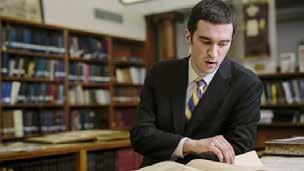
As Freemasons, we continually seek to better ourselves and the world around us through the pursuit of knowledge. At its core, Freemasonry is about the nature of truth. Together, we pursue wisdom through a system of values. We use symbols and allegory because they are the surest way in which our shared truth may be taught. Through these symbols and our shared traditions, each Mason defines and discovers his own unique path.
Leadership : Leadership skills are developed by Freemasons in their search for truth. As we learn and grow, we become mentors to others. Freemasons share their knowledge and skills with other Masons and with the community as a whole. Within Freemasonry, there are ample opportunities to learn the leadership skills that you may have never recognized you possessed. This includes leadership positions available at the lodge, District, and Grand Lodge levels.
Betterment : Striving for personal growth is a core tenet of Freemasonry. As Masons progress through the Craft, they discover different aspects of themselves and develop a range of skills they may never have recognized they had. The opportunities for betterment are immeasurable, whether it’s through helping a brother in need or supporting the community through acts of charity.
Enlightenment: As Freemasons, we cherish the pursuit of wisdom. We strive for enlightenment through the pursuit of the knowledge found in our symbols, rituals, and allegory. By striving to live with virtue and compassion and by maintaining an ongoing curiosity about our world, we continue to embody the spirit of enlightenment.

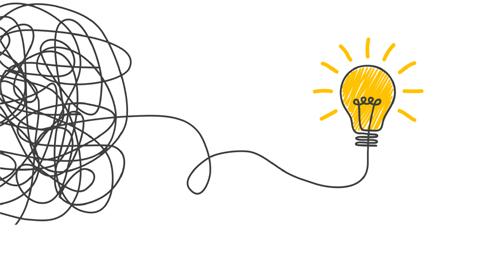
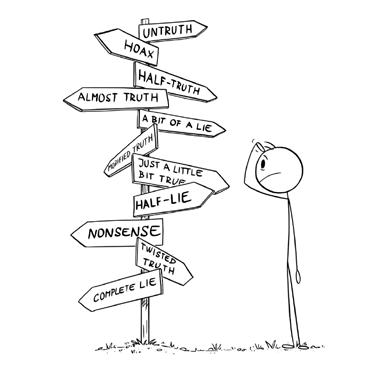
RWB:. Chad M. Lacek, 33˚
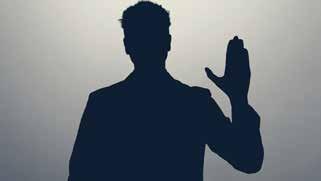
Truth is tricky. That’s easier than saying it’s an ontological alethic modality. We ask so much of it. So much, in fact, that we can’t begin to talk about it for any length of time unless we agree to bifurcate it into capital T Truth, and lower-case truth. I ask that indulgence of you now.
Mankind has been wrestling with concepts like truth for millennia. It’s right up there with Plato’s “the Good” and Plotinus’ “the One.” It gets confusing because we use it so freely, yet with such absoluteness. Its very name is the quality of being. It can’t be the truth unless it’s true. And here’s where the trouble starts.
The truth that we work with is anything but absolute. It’s the little t version. That’s how we’re able to have my truth, your truth, objective truth, subjective truth, self-evident truths, and on the list goes. I think we’ve made a habit of concealing our opinions under a cloak of “truth.” You might debate my opinion, but how dare you deny my truth! To make the error complete, we mistake our truth with The Truth.
We interact with our environment through our senses. All the information we gather is crushed and distorted through many processes before it gets to our minds for deliberation. Your taste buds might inform you that lima beans are delicious. I think only a sadist would agree to grow such a hideous legume. This is one of many examples where truth is conflated with opinion.
You may walk outside on a mild winter’s day in Chicago and declare that it’s cold. Someone from northern Canada overhearing you would beg to differ. You’d swear it’s true, and that you are in fact cold. There’s no right or wrong here, no true or false. We’re dealing with the relativity of our senses. The opposite of little truth is a lie. The opposite of capital Truth is igno-
rance.
If we chase capital Truth into a corner, and shine our flashlights brightly, we can get a glimpse of it. We will see Descartes’, “I think, therefore I am.” Aristotle’s Metaphysics will declare, “The whole is greater than the part.” Euclid will point out, “Things equal to the same thing are equal to each other”, and any mathematician will conclude that 2 + 2 = 4.
These Truths are True to all people at all times. They are True anywhere in the universe. Capital T Truth is the currency God conducts business with. Plotinus argues that only our souls have access to Truth, and Truth is the unity with the Divine Source and is beyond knowledge. Bungling humans must make do with the lower-case substitute.
Pyrrho and his fellow Skeptics doubt the existence of truth, regardless of the size of the T. They believe that we should be slow to judge, since we can never really know for sure. For them, what may be true today can be contradicted tomorrow with new information.
The Hebrew word for Truth is אֶמֶת. The three letters א (aleph), מ (mem), and ת (tav) are pronounced (ehmet) translated as Emet. Emet contains the first (א), middle (מ), and last (ת) letters of the Hebrew alphabet, symbolizing that truth is all-encompassing, from beginning to end. It is both an attribute and a name for God.
Truth is Divine. It is the property, province, and purview of the Grand Architect of the Universe. Let us, therefore, treat it with appropriate reverence, and do our best to keep it far from our imperfect little t truth, and farther still from our trifling opinions. That’s the Truth.

Kristine Wilson-Slack
All Masons seek after the Truth, a most elusive goalespecially in the digital age. Is this process made more difficult by our modern notions? Have we perhaps made it more difficult to find despite the increase in the common man’s awareness?
We have heard a lot of attacks on truth. And Truth. Truth itself has been under attack, e.g., Fake news. I differentiate the two “truths” in this way: “truth” is what we empirically know or understand; we believe it is accurate by the evidence we have in our own, singular mind. It is a fact or belief we accept as true. The “truth” involves fact or reality, as far as it can be perceived by the individual. It might even be welcomed by a collective but perhaps not by everyone. The “truth” may be subjective.
“Truth” applies to all life, all humanity, equally and regardless of circumstance. It’s not subjective like truths about religion, culture, race, creed, or even history. They might be more or less meaningful to the individual. Truth is considered universal when it applies to all places and times, logically transcending the state of the tangible and physical universe around us.
Truth and truth can be very challenging to define, but it’s worth doing so. Why? Most of the confusion when we talk about Universal Truth, something near and dear to seekers and Freemasons, is often thought of as individual. It’s not. There is no “my Truth.” There is “my truth,” which is a common phrase. Let’s explore this a little more.
What are examples?
I read recently that “The sun rising in the east and setting in the west” is a universal Truth. I laughed because that’s not the Truth. The sun isn’t moving as “rising” and “setting;” the Earth is rotating. So, the Truth seems to be that the Earth rotates counterclockwise. However, I think that’s a little pedantic for the conversation here.
Freemasons work in Universal Truths, not personal truths. Freemasons have a common language in sym-
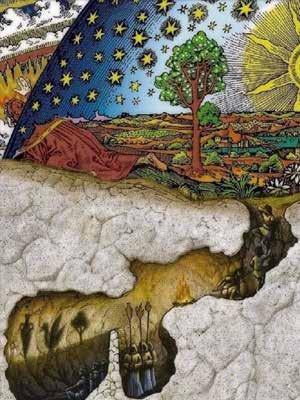
bols and the words of ritual to discover these Universal Truths. Is something like “life is sacred” a universal Truth? Perhaps. Could something like “as above, so below, and as below, so above” be a universal Truth? We lift our consciousness from the mundane to the divine, and think in terms of cosmic eons and spatial expanse. I think we approach the realm of universal Truths. When we talk about truth applying to the “human-made,” we are not speaking in universal Truths.
Universal Truths are now owned; there is no “my Truth” and “your Truth.” This is where Freemasonry digs deep; this isn’t about what we believe but about what IS. We know that all religions and philosophies have sparks of this “Truth,” but not a single one can say that it elevates all of them. This is why, I believe, Freemasonry elevates all religions. It elevates them all because all are essential to humanity coming closer to the ideal picture of Truth. Ethics and morality come from a higher source, one that encompasses all the mores, laws, rules, and commandments of the world’s
Freemasons achieve this by studying symbols. The symbols of Freemasonry are taken from throughout time and while they might change slightly depending on the consciousness of the age. While some may think that specific symbols can mean “anything,” they do not. Compasses have a very definite meaning within Freemasonry. However, the individual’s interpretation of said tool may be slightly different. We all see things through different lenses. It doesn’t mean that one Freemason has it right and another wrong, or that it must dogmatically mean what ritual states it to be. What it means is that the concepts are broad enough to encompass much and yet, be specific.
To that end, truth is found in symbols, and Truth is found in the study of symbols in close association with the human heart and mind. We are unique, and while we may experience a profound understanding of the nature of the universe, that Truth is for everyone. When we share our vision, and use whatever words we have to describe it (flawed as they may be,) we begin to draw on the larger picture of Truth in the universe. we are all seekers.
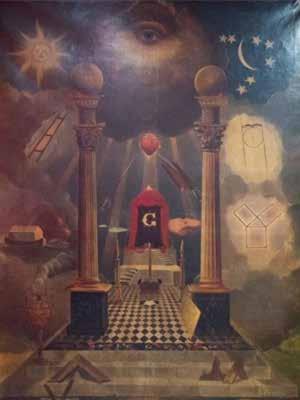

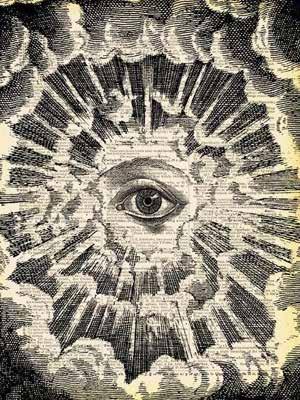


The Masonic Restoration Foundation Symposium is the largest gathering of Masons in North America who are expressly committed to observing the highest standards of excellence in the Craft. This year, for only the second time, we are returning to Canada, to one of the most majestic Masonic locations in Canada: the Hamilton Scottish Rite Temple, in Hamilton, Ontario.
The Symposium will take place from August 15-17, 2025, and will be hosted by Templum Lucis Lodge No. 747.
As usual, the event will begin with a Harmony [Festive Board] held in the Lower Level Dining Room on Friday evening, conducted by the MRF Board, and featuring comments from our Keynote Speaker, WB Ric Berman, Past Master of the Quatuor Coronati Lodge No. 2076 in London, England. Along with our usual lineup of interesting speakers, brothers will have the opportunity to witness a Fellow Craft Degree conferred by Heredom Lodge No. 749 on Saturday afternoon. Registration for the Symposium is $125.00 USD/$175.00 CAD, and $75.00 USD/$100 CAD for the Saturday session only.
We are hoping that this year’s Symposium will be an opportunity for an exchange of different perspectives and methods of Masonic practice in North America, and one that will especially bring in brothers from across Canada. All the information you need to participate is found here on this web site. We look forward to seeing you at the Symposium!
Andrew Hammer President, MRF
The MRF Symposium is a meeting place for Masons who are seeking the highest form of Masonic experience they can attain within their lodges, while strictly conforming to the laws, resolutions, and edicts of their respective grand lodges. It is a gathering for those who pursue quality in the Craft to share ideas and discuss their work. The Symposium begins on Friday evening at 7:30 PM, with a Harmony in the Lower Level Dining Room, and concludes before noon on Sunday. As always, we have assembled an excellent program of speakers and presenters to share their light with you.
Any Mason in good standing may register for the Symposium, provided he is a member of a Grand Lodge which is a member of, or is recognized by any one of the Grand Lodges which are members of, the Conference of Grand Masters of North America, or the United Grand Lodge of England, the Grand Lodge of Ireland, or the Grand Lodge of Scotland. Full Registration for the Symposium is $175 CAD/$125 USD.
- Origins, Allegory, and Enlightenment: From the Horn Tavern to Solomon’s Temple
- Why Do We Bother?
- Dealing With Diversity in the Lodge
- Tragedies and Triumphs in a New Observant Lodge
- Living Life as an Observant Mason
- Victory Through Harmony: Transforming an Existing Lodge
- The Observant Lodge In Canada
- Happiness: The Chief Aim of Masonry
- Kipling, Burns, and Observant Masonry
Featured Speakers and Panelists:
Ric Berman . Ed Burridge . David Cameron
Donald Carducci . Jean-Frédéric Dicaire Philip Durell Dan Graham . Andrew Hammer
Chad M. Lacek

by WB:. Darin A. Lahners, FILOR, IL
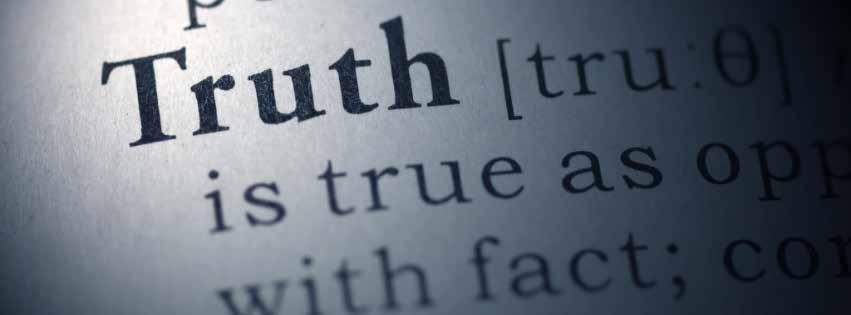
In the second section of the First Degree, we are taught that: “Truth is a divine attribute, and the foundation of every virtue. To be good and true is the first lesson we are taught in Masonry. On this theme we contemplate, and by its dictates endeavor to regulate our conduct. Hence, while influenced by this principle, hypocrisy and deceit are unknown among us, sincerity and plain dealing distinguish us, and the heart and tongue join in promoting each other’s welfare and rejoicing in each other’s prosperity.”
Carl Claudy states in the Entered Apprentice book in his seminal series: “Introduction To Freemasonry” that:
“The final design of Freemasonry is its third principal tenet – the imperial truth. In some aspects, truth seems relative, because it is not complete. Then we see it as through a glass, darkly. But the ultimates of truths are immutable and eternal: the Fatherhood of God; the immortality of the soul.
As two aspects of the same object may seem different to different observers, so two aspects of truth may seem different. It is this we must remember when we ask, What is truth in Freemasonry? It is the essence of the symbolism which each man takes for himself, different as men are different, greater as perception and intelligence are greater, less as imagination and understanding are less. We are told, “On this theme we contemplate” – we think of the truths spread before us and understand and value them according to the quality of our thinking. Doubtless,
that is one reason for the universal appeal of Freemasonry; she is all things to her brethren and gives to all of us of her Truth in proportion to our ability to receive.”
In the Fellowcraft Degree, the charge to the candidate discusses the importance of the study of liberal arts and sciences. From the same degree, we should remember these are: Grammar, Rhetoric, Logic, Arithmetic, Geometry, Music, and Astronomy. Classically, the seven are broken into two curricula, the Trivium and the Quadrivium. The Trivium is the first three: Grammar, Rhetoric, and Logic. These focus on the importance of language and analytic thought. The Quadrivium focuses on the importance of numbers and their application to understanding the world. The Trivium is made up of the Liberal Arts, while the Quadrivium is made up of the Liberal Sciences.
However, there is very little explanation given in the ritual of the importance of each. The only one highlighted is Geometry, due to its importance to the operative Masons, who needed to know it to design and build the castles and cathedrals of Medieval Europe. However, we do a disservice to ourselves as Freemasons by not understanding why all of them are as important, and how they can be used to uncover Truth. Grammar is the art of structuring language. It teaches the proper mechanics for writing and speaking.
Rhetoric is the art of persuasion. It teaches how to use language to inform, persuade or motivate an audience. Logic is the art of reasoning. It teaches us how to think
clearly, avoid biases, identify fallacies, and construct truthful rhetoric.
Arithmetic is the study of numbers. It teaches us a deep understanding of how mathematics is at the root of scientific discovery and scholarship.
Geometry is the study of numbers in space. It teaches us about magnitudes and shapes and how the relationship between the two offers insight into the operation of the physical world.
Music is the study of numbers in time. It teaches us about how music is made up of the mathematical application of harmonious ratios and proportions.
Astronomy is the study of numbers in space and time. It teaches us how observing celestial objects allows us to use mathematics to unlock the secrets of the universe. You might be asking how these can be used to uncover Truth. Let me explain:
Grammar allows you to understand how rules and order are important. It also teaches us how language, following the correct order, is important. Let us not forget that the Great Light of Masonry, the Bible, begins with the Grand Architect using grammar to create the known universe by speaking it into existence by saying: “Let there be light, and there was light.” If the Great Architect had instead said: “Light was there and light be there”, it grammatically assumes that Light preexisted before the earth was without form and void. The Jewish faith and the Islamic faith both believe that their languages are holy because they believe that those languages are what the Great Architect spoke when creating our reality.
Rhetoric allows you to understand how to wield the power of words. It is what allowed the Great Architect to order the universe to come into being. It is what allows me to try to persuade you to study the liberal arts and sciences. It builds upon Grammar to allow you to use Grammar to persuade or influence others to agree with you. Rhetoric also requires the next Liberal Art and Science, Logic.
Logic is what allows you to reason and think. Without Logic, you operate on blind faith that what you are being told is empirical truth. If you accept that everything that is told to you is truthful, you are more likely to fall victim to a scam, be gaslit, or have blind allegiance to a sect or cause. Logic is what allows you to intake Rhetoric and be persuaded or disagree with said Rhetoric. Logic allows you to take rhetoric, form a hypothesis
about it, collect data about what you are being told, and verify it by using other data points, to verify whether it is truthful or not. While our ritual places a great importance on the study of Geometry, it is a part of the Quadrivium. I would argue that Logic is as important for Trivium. Logic is what allows for critical thought. Critical thought is what keeps us as a society from descending into barbarism.
Logic is also what allows for the Quadrivium. Without Logic, Arithmetic, Geometry, Music, and Astronomy could not exist. This is because all science is based on finding Empirical truth, and without the ability to apply logic, we would not have the capacity to study anything.
Arithmetic, being the study of numbers, uses logic for the verification of a theorem. For example, we know that two plus two equals four because we can verify it. Logic tells me that if I hold up two fingers on my left hand and two fingers on my right hand, I can count them to see they make four. I can do the same thing by holding up one finger on one hand and three fingers on the other, or four fingers on one hand and none on the other.
All these different permutations still add up to four. It would be illogical and incorrect to have four fingers held up and call it anything other than four.
Geometry is explained in our Fellowcraft degree as the foundation of architecture and the root of mathematics. Our ritual states: “By this science the architect is enabled to construct his plans and execute his designs; the general, to arrange his soldiers; the engineer, to mark out grounds for encampments; the geographer, to give us the dimensions of the world, and all things therein contained, to delineate the extent of seas, and specify the divisions of empires, kingdoms and provinces. By it, also, the astronomer is enabled to make his observations, and to fix the duration of times and seasons, years and cycles.” Geometry would be the most important science to the operative stonemasons as they shaped their ashlars in the quarry and placed their designs on their trestle boards. Again, it is truthful because mathematics is a truth that is empirical.
Music has been used by mankind in various ways. It has been used to celebrate, dance, pray, soothe or arouse the senses, to instill courage or to terrify, to commemorate or to unite. In Plato’s dialogue, Timaeus, the world is created from the musical compositions of a God who is a musician. Music should play
a prominent role in Freemasonry, although many lodges have gotten away from its use. There are also many famous musicians and composers who were/ are Freemasons. Wolfgang Amadeus Mozart, Franz Joseph Haydn, Johann Christian Bach, Irving Berlin, John Philip Sousa, Count Basie, Duke Ellington, Brad Paisley, Stoney La Rue, Apathy, Tobias Forge, John Entwistle, Dez Farera, Tom DeLong, Mel Gaynor, Derek Forbes, Marshall Goodman, and Bob Dylan are just a few.
The Grand Lodge of Illinois Book of Ceremonials has the following to say about the Office of Organist in the ritual for the installation of officers:
“Brother ……, you are appointed organist of …. Lodge. Under the direction of the Worshipful Master, you will conduct the musical services of the lodge. As harmony is the strength and support of all institutions, so may the harmony over which you shall preside strengthen and support every gentle and ennobling emotion of the soul.” Music is also truthful because at its root, it is based on mathematics.
Astronomy has a deep connection to Freemasonry as well. Within our rituals and symbols, we refer to the sun, moon, stars, comets, and other celestial phenomena. Robert Hewitt Brown’s opus: “Stellar Theology and Masonic Astronomy” should be read by every Freemason who is interested in learning about the connections between astronomy, theology, and Masonic symbolism. In fact, the second section of the third degree is rooted deeply in astronomical symbolism if you know how to interpret it. It has also been proposed that one of the functions of King Solomon’s temple is that it was an Astronomical Observatory. Astronomy, being the study of mathematics in space and time, is also truthful.
What I hope to have illustrated is that by the use of the Liberal Arts and Sciences, we as Freemasons can discover truth. The Liberal Arts and Sciences allow us to study the wondrous canopy that the Great Architect has designed, and through it, come to the realization that the rules that govern the known universe, studied under the various branches of science, are emanations of the divine and therefore as true as the fatherhood of God. That expression through the arts is as sacred as the Great Architect’s first expression in the creation of the universe in which we reside. This is why the Liberal Arts and Sciences, and their study, are so important to Freemasonry; they provide us with a means to better understand our relationship with the Great Archi-
tect. Through their study of them, we can understand the world and our relationship to it. We can observe the truth and beauty that is hidden in plain sight for us to discover.

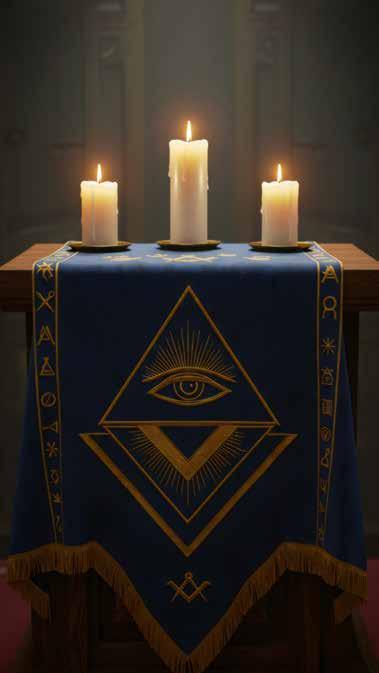
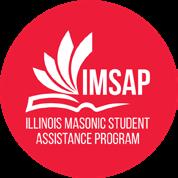
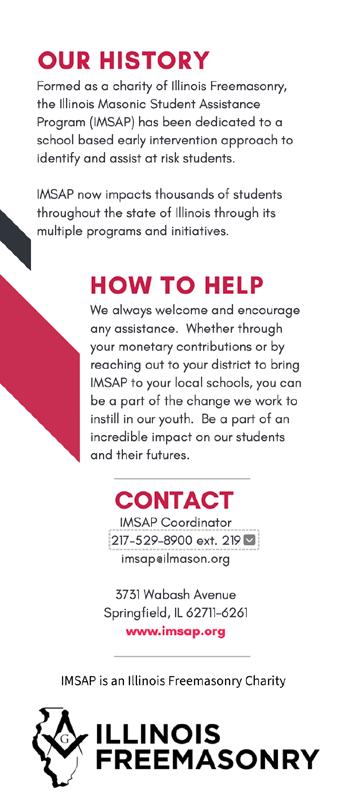

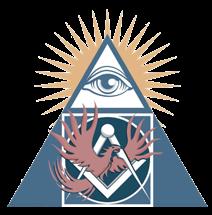

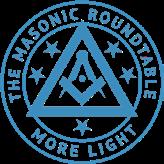




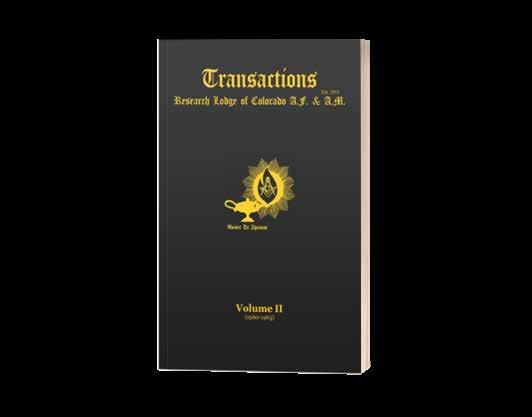
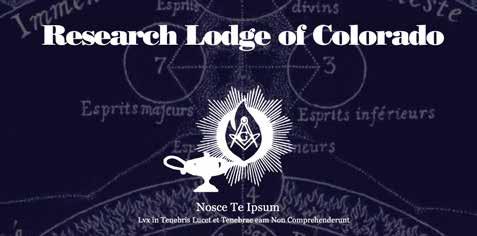
Since 1953, the Research Lodge of Colorado has been producing quality Masonic Education papers. Over the last three years, the Lodge has worked tirelessly to compile the transactions into an amazing volume that is beautifully curated and printed.

by RWB:. Robert H. Johnson, FILOR
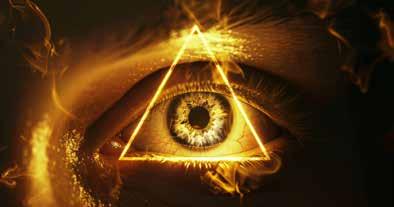
In my first philosophy class in college, we began to learn things that I thought we probably should have learned in high school. I still think that’s the case, generally speaking. While the world loses its belief that a collegiate education is necessary , I believe at least an associate’s degree in liberal arts is a good move. I digress.
Back to my first philosophy class. We spent a great deal of time speaking about Absolute Truth and Prima Facie Truth. Wait, how can there be more than one truth? Well, it’s like this:
An Absolute Truth is an idea that you can apply to anything, and the answer is always the same.
A Prima Facie Truth is an idea that may change depending on the situation.
Many examples were laid upon our fresh, young brains in that class. Many were disturbing—but this was also necessary to get us to understand the impact of these two ideas when applied to the world we live in, or our reality.
For instance, if I said, “Murder is wrong.” Is that an Absolute Truth or a Prima Facie Truth? What is the circumstance? What if you could go back in time and kill Adolf Hitler before he rose to power? That certainly would be Murder. But—say it again – “Murder is wrong.” Is it Absolute, or Prima Facie?
Another powerful example I remember well – we had a guest lecturer one day, a Holocaust survivor. He recounted the following (paraphrased).
“The [German] soldiers were coming into the home. There were seven of us, including a newborn. We ran
to an area of the house that had a false wall, and we opened it. We packed ourselves into it. We could hear the soldiers walking through the house, asking questions. We were all very frightened. We were so quiet. You could not hear anyone breathe. Then, the newborn began to whimper. It was hungry. We all were. But the baby began to get louder. At first, the mother held the child against her breast to soothe it. The seconds turned into minutes—we all stayed very quiet, even the newborn. When the soldiers had left, we were able to come out of the hiding spot. We were relieved. All of us except the mother of the newborn. You see, she had killed her baby by suffocating it, to save us all. I never knew if it was accidental or if it was with fear she held the baby so tight. I never asked.”
Our professor then asked us – “Is it true that the mother was justified in her action?” Many of the students in class spoke out and expressed to our professor that this was an unfair question. He reminded us that this is the issue with Truth. “Is this statement Absolutely True or Prima Facie? Murder is wrong.”
Aha – The class seemed to sit back in a collective sigh and loosely agreed that Murder, however wrong it is, perhaps, maybe justified – but that we cannot know for certain because we haven’t lived within the circumstances described.
So – here we are. Absolute Truth, Prima Facie, and now its accomplice, Context.
Today, around the world, as we learn more about people and their situations in life, we begin to understand more introspectively the concept of “walking a mile in someone’s shoes.” This is perspective. It’s an important tool in communicating with all people. It aids in creating empathy, or rather, an emotional connection
to the person we’re communicating with, and this, in turn, validates the person’s feelings with whom you’re speaking.
Said differently, they know you care and are listening. Not to respond, mind you, but to listen.
You may have heard people say, “I’m living my truth.” Or perhaps, “They’re living their truth.” This alludes to the concept of Subjective and Objective Truth.
In short, Subjective truth is true for the subject—the person who is claiming it as their truth. Objective Truth is a little trickier. Some would say that Objective Truth is a Truth that is true from the standpoint of an observer. Think of it this way – Subjective Truth is what you say you did. An Objective Truth might be a video showing anyone watching it what you did. Can these be different? Yes. Truth is complex!
Let us also remember something that is true while examining Truth.
Objective Truth is what everyone in a given society agrees it to be. But it still doesn’t mean it’s True. We must recognize that cultures around the world often approach things differently than we do in the Western world. For instance, while we may view shaking hands to be respectful (the objective truth in the United States), there are places in the world where this is not the case. So if I say, “Shaking hands is a sign of respect.” It is a completely subjective statement if we do not add a qualifier, i.e., “in the United States.”
Another thought experiment that occurs to me is one that another professor of mine once proposed. For context, this was a Philosophy in Religion class. The professor taught objectively, and after graduation, we went out for coffee--finally, he let me call him John and not Professor Rund. I remember telling him, “I could never pin you down. Are you Christian? Jewish? Buddhist? I couldn’t figure you out.” He told me that by saying that, I gave him a great compliment. He taught objectively. He never gave a clue. He did tell me, “I’m what you might call a C.S. Lewis Christian.” He was also a teacher and a minister for a church that was associated with a collegiate institution.
One day in class, Professor Rund proposed this scenario regarding a person’s individual truth and what we believe.
“There are two people. Jan and Max. Max is a devout
follower of his religion, and he believes that his god is the most powerful force in the universe. Jan believes the same, although she believes in a different god than Max. Jan was overheard saying that she believes that every person has their own truth and that it’s real for them.”
Can you spot the problem here? It’s not just semantics. How can Jan believe that individual truth is real, while both believing that her god is most powerful and that Max believes his god is most powerful?
These are complex examples and are not easy to grapple with-- especially if we’re truly thinking deeply on them. Sure, you might have an instant answer for these questions, and yet, if your mind is satisfied with knowing the answer from a gut reaction, we must ask, have we truly examined the questions, statements, and our own conscious thoughts on the matter?
We’re Freemasons and called to be better. To be examples to the world in whatever ways we can exemplify grace, goodness, and yes—the Truth.
Hannah Arendt (1906–1975) was a German-born Jewish political theorist and philosopher, renowned for her work on totalitarianism, the nature of evil, and political action. Forced to flee Nazi Germany in 1933, she later settled in the United States, where she wrote influential books like The Origins of Totalitarianism and Eichmann in Jerusalem: A Report on the Banality of Evil. In Eichmann in Jerusalem, she introduced the concept of “the banality of evil,” suggesting that horrific acts can stem from thoughtlessness rather than inherent wickedness. Her experiences as a refugee shaped her insights into the dangers of oppressive regimes and the importance of individual thought and responsibility in resisting them.
In her essay Truth and Politics, Arendt argued that mass lying undermines our sense of reality by which we find our bearings in the real world:
The result of a consistent and total substitution of lies for factual truth is not that the lie will now be accepted as truth and truth be defamed as a lie, but that the sense by which we take our bearings in the real world—and the category of truth versus falsehood is among the mental means to this end—is being destroyed.
One is reminded of the type of Truths that perhaps matter most in these troublesome days. That of the Truth in history. During his rule of the Soviet Union
from the late 1920s to 1953, Joseph Stalin systematically rewrote history to eliminate his enemies, glorify his own role, and consolidate absolute power. This manipulation was conducted through censorship, airbrushing photographs, and controlling the historical narrative in official books and media.
While not “rewriting history,” another example is of Adolf Hitler and the Nazis, who systematically manipulated public perception through propaganda and censorship to fit their political narrative. This was central to their rise to power, consolidation of control, and implementation of genocide. Rather than fabricating a new past from scratch, the Nazis exploited existing historical grievances and antisemitic ideas, presenting a distorted version of history that aligned with their ideology.
As Freemasons, we stand for Truth. We stand for Progress. We stand for Knowledge. Our organization has withstood the test of time, and it is precisely because of our tenets of Brotherly Love, Relief, and yes, Truth—that we will continue to be a beacon of light, and a testament to Truth. We must be aware of the world around us. We must recognize when Truth is rewritten to favor a narrative, political, social, or even in our own spheres of influence. What can we do when we see these things? We can be Freemasons.
As Dwight L Smith once said, “Try Freemasonry.” Let us whisper good counsel, let us befriend and offer to listen to another’s perspective, while also offering instruction if appropriate within our ranks. To the profane, offer an ear, give grace, and offer insights that we might find common ground.
As our ritual states: “Truth is a divine attribute, and the foundation of every virtue. To be good and true is the first lesson we are taught in Masonry. On this theme we contemplate, and by its dictates endeavor to regulate our conduct. Hence, while influenced by this principle, hypocrisy and deceit are unknown among us, sincerity and plain dealing distinguish us, and the heat and tongue join in rejoicing each other’s welfare and rejoicing in each other’s prosperity.”

from the 1954 Grand Lodge Annual Communication
We are again privileged to meet as free men in a land where every individual man has a right to think and speak for himself and to worship God according to the dictates of his own conscience. We meet today as a Grand Lodge for the one hundred and fifteenth Annual Communication, and my mind goes back to that day when a small group of Masons representing only six Lodges met in my hometown of Jacksonville and organized this Grand Lodge.
I stood a few days ago in Central Park in Jacksonville, looking across at the building where these Pioneer Masons met, trying to think of the tremendous effect for good that has come to the people of this Great Central West due to Freemasonry becoming deep rooted at that time and spreading its influence for good into every hamlet and city of our jurisdiction. Time has marched on, miraculous changes have taken place and the boundaries of the world have changed many times but the true principles of Freemasonry continue to cause men to hold steadfast to a spirit of rectitude and to exemplify to the world, a way of life which brings men together with many religious beliefs under the Brotherhood of Man and the Fatherhood of God.
It is true that we are living in a world divided by two ideologies. One-half of the world is trying to stamp out the eternal spirit of Him who doeth all things well and the other one-half looking for Divine guidance that we may continue to live under the flag of freedom handed down to us by those men of courage who recognized that the Great Architect of the Universe is Supreme. So, my Brethren, we meet this morning, representing that Ideology, which is based on a belief in Eternal God, under whose watchful care we submit our report at this time.

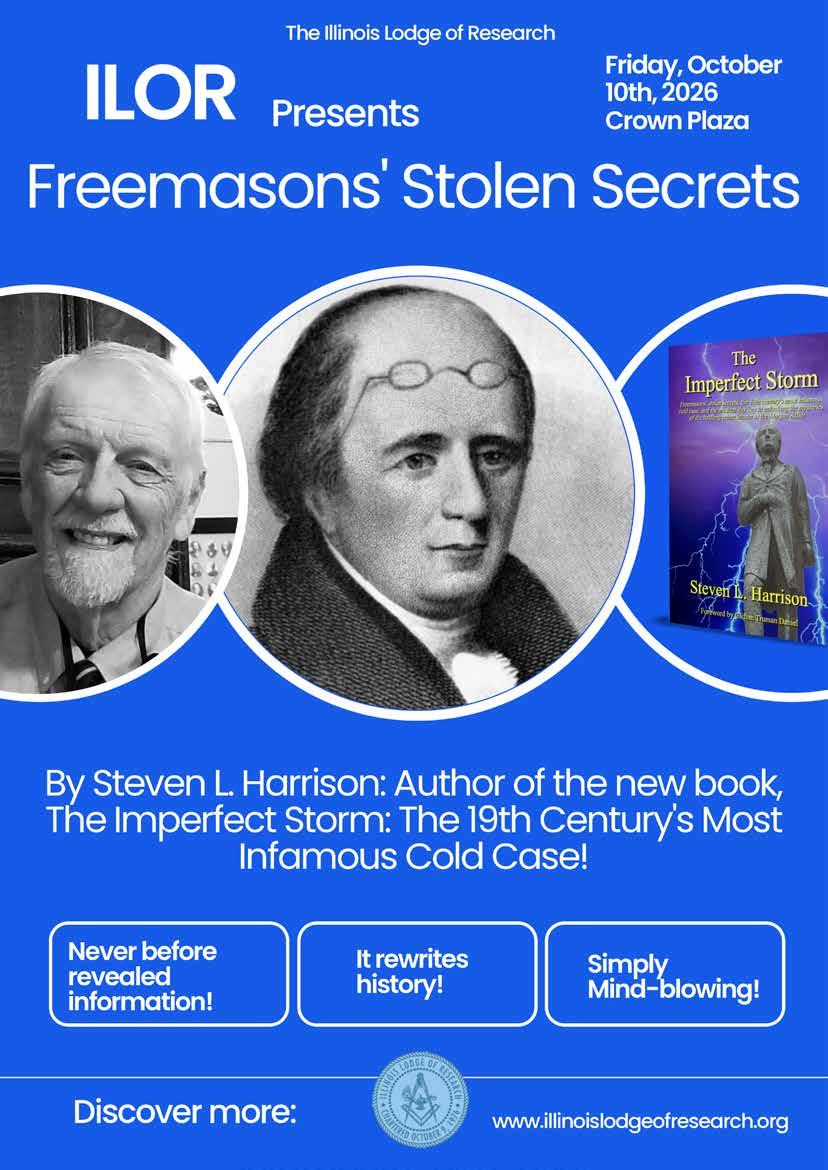
The oration - 1960
by Brother Frank Eversull, Grand Orator of the Grand Lodge of Illinois, Past Grand Chaplain of South Dakota
As we recall the closing lines of one of the appealing verses of “Abide with Me,” we bow in deep humility before the throne of the everlasting Grace. The words are moving. “O Thou who changest not, abide with me.” In these days of impending disaster and at a period of the history of mankind when there are grave questions asked about the permanence of our social order, political life, economic strength, and spiritual realities, we ponder the whole idea of permanence. Then the familiar strains of that old Church hymn come with an assurance that there are some abiding things in this world which neither time, nor tide, nor wars, nor communism can ever destroy.
Our first task is to consider the nature and the extent of these permanent elements of our world. Let us first think about some of the negative aspects of this proposition.
I. The Material is Not Permanent.
With our increasing knowledge of the universe of which we are a part, it becomes more apparent that the material things of this world are not permanent. Just the other day, I noted an item in a scientific paper in which it was stated that in 100,000,000 years, the hydrogen of the sun’s atmosphere will have burned itself out, and the golden orb that rules and governs our days will forever be a dull black cinder in the center of the galaxy of our planets.
Increasingly, we come face to face with the reality of the statement, “Change and decay, in all around I see.” These changes bring to naught the realities of our yesterdays. Each morn we are born into a new world. We are amazed at the number of combinations and permutations that can exist to make change the only reality. It was Heraclitus of old who taught that CHANGE was the only permanent thing.
II. Organizations are not Necessarily Permanent.
In the same manner, we can state that organizations and organizational structures are not of the functioning organs of a society and of the men who compose that society. They are functional in terms of the changing needs and the changing natures of our minds, as well as the states of flux in the world that houses and supports us.
Organizations change. They waste away and are gone. The highways of history are littered with the cold remains of the societies of man and the tolls of his performances in the yesterdays. Their memories persevere, but their substance is no more. They become the warning beacons on our highways to eternity.
Structural relationships change in this physical world. These evolve as we better understand the basic patterns of the growing mind. The new scenes depict the devastating battles between the mind of man and the materials of his world.
III. The Compulsion of Power is an Indication of the Transitory Nature of Life.
The compulsion of power is the third element that is not permanent. We have never fully understood that the “meek shall inherit the earth.”
“As a man thinketh in his heart, so is he,” and so is the society which he creates, protects, and defends. The destiny of our culture and our own souls lodges in the laboratory, the church, the home, the schools, and those groupings which afford us an opportunity to do, to think, to be, to become, to pray, to plan. These are not of the nature of power or of compulsion. Power brings in its wake destruction. It alone furnishes the materials out of which gun powder, nitroglycerin, dynamite, and atomic fission are made.
Power, whether it is mechanical, electrical, steam, or chemical, subjects itself to the inexorable laws of the equation. It gets as it gives, and in the process, life is
altered or destroyed. Power is transitory. It works at the point of application and is dissipated in heat, or wear, or realignment of atoms and ions. The whole world is destroyed to light a lamp, move a stone, turn a wheel, or lift a weight.
I. The Capacity to be Free is Permanent.
Now we turn to the other side of the coin. What are the permanent and abiding concepts of life, the positive elements of our lives?
The realities of our days are best expressed in the capacity to be free and to crave, fight for, and defend man’s inherent longing for liberty. It is of the elements of our careers that adds to the sum total of life as we create freedoms in the society in which we live. It is equally true to say that “Ye shall know the truth” and “that the truth shall set you free.” In the long perspective of history, liberty has been the acknowledged goal of mankind. The search for this reality has given rise to the bloody battles between those who would perpetuate slavery and those who sought the God-given right to be free. Into the vast arena of this continuing struggle, men have plunged their total existence to determine whether the freedoms bought with the blood of our fathers and our sons will endure or whether we will sell out and attempt to slink into the folds of Communism under the darkness of defeat and disaster.
II. There is a Permanency to Our Desire for Democratic Ideals.
In the same tenor, we make application to the highborn ideals of democratic freedom as they are expressed in man’s yearning for the rights to rule himself within the limits of truth and justice. The raging battles of the current scene concern our willingness to pay the price for freedom as opposed to the opportunity to exist under the heavy hand of the tyrant and the oppressor. We need but to examine the records of the past decade to see what the issues really are.
III. There is a Continuing Struggle for the Right to Think.
The third aspect of permanency that commands our attention is the right to think, to feel, to act in terms of self-preservation, self-advancement, and self-realization. The only motivated reality that gives permanence to the meanings of life is the inherent right to give
self-expression to the deep desires for right, righteousness, and truth. Man must live his own life within the shadow of others and the true Light of God to understand as well as capture the undergirding truth of self-direction. Then honor, and virtue, and chastity, and truth become meaningful.
IV. The Right to Organize with others for Personal and Soul Advancement is Permanent.
Once these elements are achieved, we involuntarily move into the fourth area of positive values that are imperishable. This one is the urge to organize for the high purpose of protecting and defending vocational choices, family integrity, religious independence, and fraternal equality. The church, the family, the school, the lodge are all a part of the same fabric. They emerge only as one achieves these choices and dedicates himself to them.
THE OUTLOOK FOR THESE PERMANENT AND ABIDING THINGS.
Let us turn to those things which are demonstrably permanent. Religion is eternal. The organized church may suffer changes and alterations. This has ever been true. Even the great monolithic structure of Roman Catholicism, which dates back to the early centuries of this era, must change its basic conceptions of religion as is evidenced by the succession of Papal Bulls that have come from the pens and the minds of many of the popes of Borne. The deterioration and disintegration of religious concepts and obligations are inherent as we note the advancement of man toward the Throne of God. It was Job who voiced this great longing when he cried out, “O that I knew where I might find him.” The seeking after God and the alteration of the methods of the search will run until the mind of man altereth not and his sense of security abideth in newly discovered truth.
The mature concept of Democracy is the second item of the permanent fixtures of life that demands increasing attention. Democracy and the enlargement and the enhancement of human rights will last as long as the mind is structured as it is. Man seeks to be free to rule himself, to think for himself, to plan for an eternity of worth. These insistent demands for rights are oriented in the concept of a world peopled by others and the ex-
tension of those rights we seek for ourselves to all other living human beings. It is based on the strong assent to the question, “Am I my brother’s keeper?” From the beginning of recorded thought to this very hour, the search and the question have been the same. There can be no negative answer save under the compulsion of a totalitarian government that seeks primarily to destroy rather than to build.
These foregoing things have been based upon the acknowledgment of the fact that Education also is synonymous with the abiding truth of God. Man has always yearned to know the how? the why?, the who?, and the where? He quests eternally to achieve the stature of God and to possess the content of His mind. As he pushes the horizons of knowledge farther and farther back, he comes closer and closer to the Mind and Heart of the Grand Architect of the Universe, the God and Father of mankind. We long to think God’s thoughts after Him.
Real education can never be replaced by cunning and clever propaganda. This is not of the Person nor of the Being of Jehovah. Hence, those platforms, programs, and practices which obtain their temporary strength from propaganda and fear and greed are bound to fall inert and lifeless from the very weight of their mental and spiritual ineptitude to rule over the hearts and minds of men. We seek to be free. Communism is of the cruel, avaricious, heartless mind. It rushes headlong to exterminate itself by its own inconsistencies.
The inevitable conclusion to this matter must come from our dedication and our adherence to the structure, the teachings, the origin, and the destiny of Freemasonry. Masonry is one of the continuing forces in this universe that lays prior claim to the blessings of immortality. The majestic Hiramic Legend was born of the spirit of labor and the toil of daily work. It has caught in its golden chalice the high hopes and the beautiful practices, together with the noble aspirations of those who would be pure, free, valiant, and unrelenting for honor. Masonry is of the essence of modern man seeking modern methods with which to express modern brotherhood in a troubled world. These elements have ever been a part of the structured belief of man. They gave and will give him purpose, direction, physical strength, mental acuity, and moral grandeur. They are permanent until life shall be no more.
V. Masons may fail—Masonry is Permanent.
Masons may falter, hesitate, and fall. They have, since the beginning of time. The names of the Generals on the staff of George Washington, that great Free Mason, are engraved upon shields in the old Chapel of West Point. One is a blank. A Mason, who failed, is remembered only as a traitor. His name alone is dropped from the rolls of those who thought it noble and true to give their all to the cause of freedom, truth, and brotherhood. Like this nameless one, some Masons have failed in every compartment of life. But in spite of these exceedingly few who have been defaulters, Masonry has gone on. It will go on in spite of those who failed it, those who blaspheme against it, those who fight it.
Those who find it a tie, stronger than human hands can impose, are driven by an insatiable thirst for the noble, the beautiful, the true, and the free to assume the highest hopes to all mankind. The great ambitions, the endless progress and the scintillating thoughts of those who have ever met upon the level and parted upon the square are the surest evidences that the toils of Communism and the host of alien ideologies are not strong enough to deflect the noble passions and high desires of mankind from a true reign of the Almighty and from the assurance of a blessed immortality.
Some Masons may fail themselves, their lodge, and their brethren. But Masonry eagerly perseveres on the highways to achievement, to that day when men shall brothers be and when the Eternal God shall sit serenely in the Eternal East of His Kingdom. Every added Entered Apprentice that adorns the Northeast corner of the lodge is an added bond in this great tie that unites us with the eternity of God. The bonds never differ, nor can they be altered or destroyed. The challenge, to us here this great day, is whether or not we shall be worthy and well qualified to assume the terrific strain that is being imposed upon Masons and Masonry by the hostile forces to totalitarianism and communism in the world in which we live. Masonry must and will persist. Be assured of this. History is our witness. But what about us? As Masons, it all depends upon our devotion, dedication, and desire. God help us to live for and die in this great and good Order which springs from the great heart of God. We are of the hope of the world. We dare not fail our high mission. God helping us, we shall not. Once more, we shall ride to victory through the sublime teachings and the noble practices of Ancient Free and Accepted Masonry.
This is our high calling in a changing world. The radi-
ant light from the eternal East shines down a pathway that will bring us at long last to the eternity of Goodness, Beauty, and Truth. To this high road we here and now re-dedicate our every endeavor.

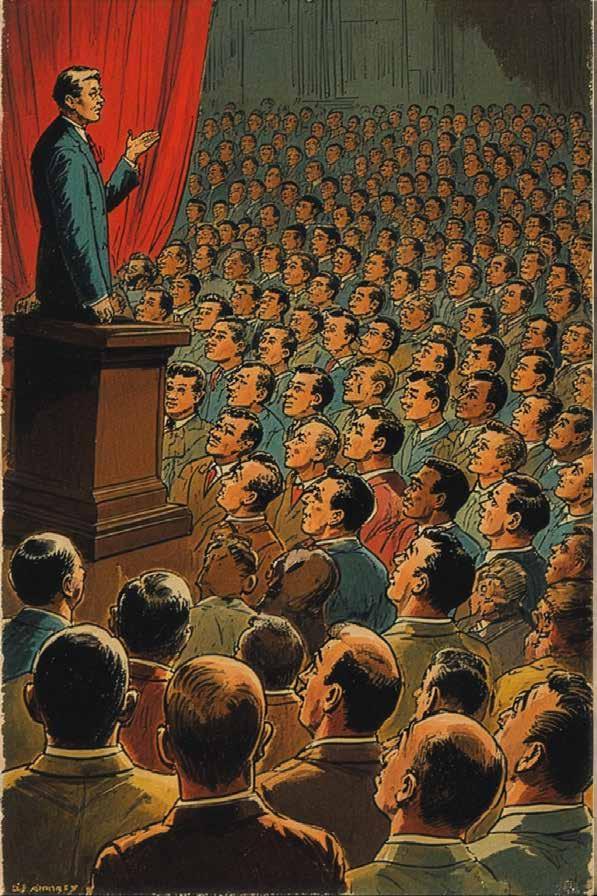
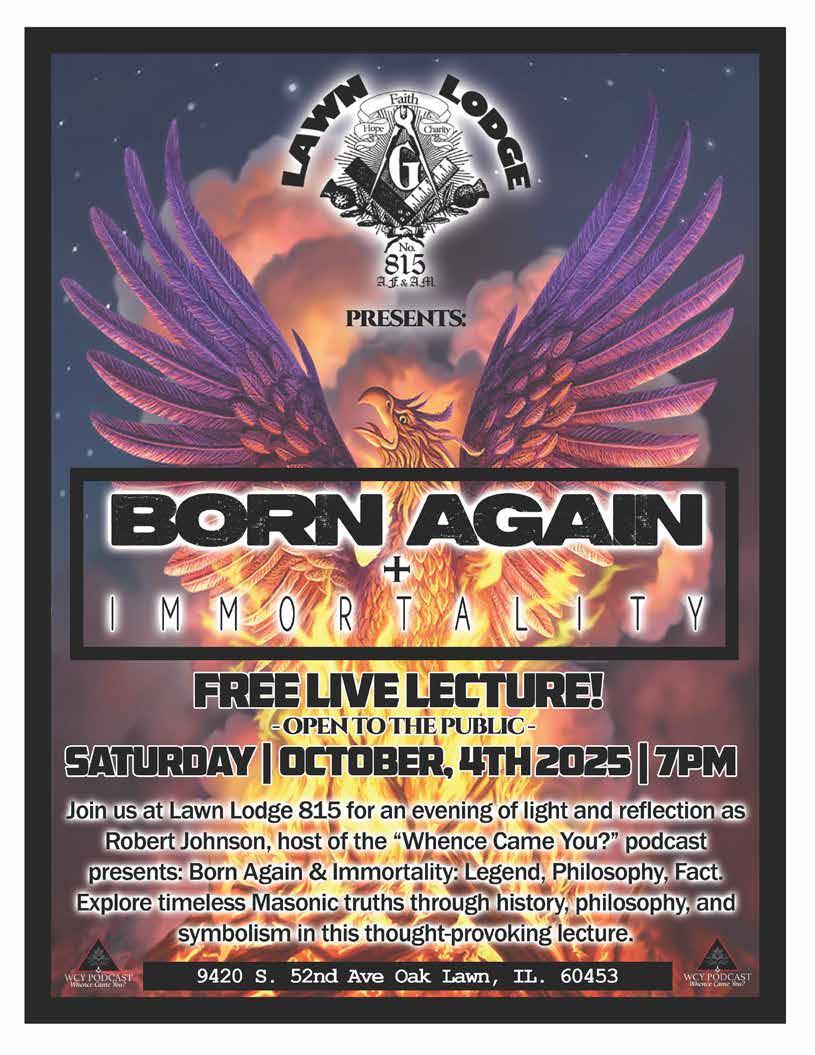
Central Illinois All-State Fall AMD In-Gathering - October 18th, 2025 - Bloomington-Normal Masonic Lodge Open to all members of the Allied Masonic Degrees

Masonic Con South – October 18 & 19th, 2025 – North Carolina www.MasonicConSouth.com
Midwest Conference on Masonic Education – April 24-26 - 2026, Omaha, NE, www.MCME1949.org
Yes! Masonic Con Chicago will be back in September of 2026.



Grand Lodge Annual Communications 2026 - October 10-11, Springfield, IL www.ilmason.org
Illinois Lodge of Research Annual Meeting 2026 - October 10, Springfield IL
For more visit, MasonicConferences.com

If your lodge or organization is having an Educational Event (not related to instruction or charities), please let us know. Email the details to: Admin@wcypodcast.com
Please give us at least a month notice so that we can ensure it is added.

